Without hosting, it’s impossible to launch a blog. But when you’re new to blogging, it can be really confusing to figure out how much you should budget for web hosting.
You don’t want to spend hundreds of dollars a year on hosting that’s way more powerful than your blog needs. On the other hand, you don’t want to buy bottom-of-the-barrel budget hosting that will result in your site frequently going down—losing you readers and customers. Making the wrong decision on hosting could end up being an expensive mistake.
Even worse, many web hosts’ pricing seems confusing. For instance, you might see a great introductory offer of $2.75/month but when you look closer, you’ll realize that you need to pay upfront for a full 3 year subscription to get that price.
We’re going to take a close look at what website hosting costs. We’ll explain the key factors that make up the price of web hosting, such as how robust and secure it is. We’ll also unpick some of the hidden costs of web hosting, like setup and renewal fees.
With this information on hand, you’ll be able to make an informed decision about the best web hosting for your needs.
What is Web Hosting and Why Do You Need to Pay For It?
On average, website hosting costs anywhere from $2.59/mo all the way up to hundreds per month or more—depending on the type of hosting plan you need (which we’ll explain in this guide).
For most new bloggers, web hosting is their biggest non-negotiable expense.
So what exactly is web hosting and why do you need to pay for it?
Without getting into complex blogging terms, web hosting is simply a service that allows you to publish your website on the Internet. A web host, therefore, is a company that provides you the infrastructure (technology) needed for your website to be viewed on the Internet.
Websites are “stored” on powerful (and very expensive) computers called servers. When a user wants to view your website, they simply type your website address into your browser. Alternatively, your website can also show up for search queries related to what the user is searching for. Clicking on your address, also known as a uniform resource locator (URL), then takes the reader to your website’s location on the host server.
Aside from simply hosting your website, the best hosting plans also include other key features to help run your blog more effectively, like:
- Security
- Speed
- Reliability/uptime
- Support
Free vs Paid Hosting: What You Need to Know
There are some services that let you put a website online without paying anything.
There’s a big catch to these, though. No web host is going to provide their service totally free of charge. Free web hosts will have one or more of these drawbacks:
- They run ads on your website, and they make money from these. You can’t remove the ads, and you may have little or no control over what ads appear.
- They provide a very basic free service that pushes you to upgrade to a paid plan.
- You need to use their website builder (e.g. a free site with WordPress.com has to use the WordPress software and a free site with Wix.com has to use the Wix software). There’s simply no option to create your site using different software, even if you’d prefer to.
- They provide a low-quality service, meaning your site might go down if it gets lots of visitors at once. It may even go down at random. Plus, you’re likely to have a long wait for technical support.
- You may face lots of restrictions about what you can do with your site. Some of these will be technical restrictions (e.g. the software won’t support running an online store unless you pay to upgrade your account). Others will be restrictions based on the company’s terms and conditions (e.g. you may not be allowed to run advertisements on your blog).
Another big snag with free hosting is that you can’t normally use your own domain name (URL). You’ll be stuck with a domain name that includes the host company’s name as part of it. Instead of being able to use a domain like ryrob.com, you’ll have something more like ryrob.wordpress.com.
Free web hosting, while technically “free” can only take you so far. It could be the right choice if you have no budget to spend on blogging costs but you’ll be pretty restricted in what you can do with your site. The moment you decide to seriously pursue blogging as a way to build a real business, you’ll need to invest in paid web hosting—before you hope to monetize your blog. The advantages of paid web hosting over free hosting include:
- Unlimited ways to monetize your blog without restrictions
- Stronger security features
- Faster and more powerful servers
- Scalability
- More storage
- Website backups
- Better uptime
The website hosting cost for getting your website online is definitely an investment worth making.
With the right paid hosting, you get a secure, fast website with all the features you need to make money online. Plus, you should have easy access to technical support in case you have any questions or difficulties.
What Factors Into the Website Hosting Cost?
Several different factors go into the cost of web hosting. Let’s take a closer look at:
- Domain name registration cost
- Security cost
- Support cost
- Server reliability cost
- Setup fees
- Renewal fees
Domain Name Registration Cost: Free for 1 Year (with DreamHost or Bluehost) then $10.00 – $20.00/yr
In simple terms, a domain name is your blog’s name. It’s also the address where Internet users will navigate to in order to access your website. A great domain name is easy to remember, an extension of your brand, and can also help you promote your blog as a memorable brand, like so:
That’s why it pays to choose a web hosting company that gives you a free domain name (for your first year)—because you’ll need to choose a domain name right away before you can get your blog online.
Despite many of the top hosting plans throwing in a free domain registration for new customers, you’ll have to watch out for the domain renewal fee—as it may end up being more costly than registering one yourself first. A good domain name should cost you no more than $10.00 – $20.00/year.
Security Cost (variable)
Some web hosting plans include anti-malware software to protect your site. This can prevent hackers from installing malicious code on your website.
While all web hosts should have secure servers, you’re likely to pay more for plans that include additional security for your website. Alternatively, you might prefer to pay for third-party security services, such as Sucuri (which costs from $199/year per site).
Support Cost (variable)
All paid web host plans should include some type of technical support. If you’re paying for the cheapest plan from a web host, you can normally expect email and/or live chat support. You normally need to pay more if you want phone support.
For most new bloggers, the basic level of support is all you need. Remember, your web host isn’t there to answer WordPress questions like how to change the font size on your blog. There are plenty of tutorials available online to help you understand the technical side of blogging and creating a website.
Server Reliability Costs
Keeping servers maintained and reliable is a huge expense for your web host company. If you want top-notch web hosting that’s blazing fast and offers the best possible uptime for your site, you’ll likely need to pay for it.
Some web hosts such as Bluehost are well-reviewed by experts and customers for their excellent levels of uptime.
Most web hosts will claim 99.9% uptime. For impartial details, you can see some tests on uptime and speed here.
Setup Fees (Rare)
Most web hosts don’t charge a separate setup fee. However, it does cost them to accept you as a customer. That is simply rolled into your monthly or annual price.
This is one of the reasons it always costs more to pay monthly for web hosting instead of paying yearly. Committing to a full year means the web host can charge less, overall, across 12 months.
Renewal Fees (Watch Out!)
Renewal fees can be an unpleasant surprise for many bloggers. You sign up for a really cheap plan for a year, and it’s not until much later that you realize you’ll be paying far more after renewing.
Web host companies know that most bloggers won’t want to switch to a new host so they often have a much better deal for joining than for renewing.
When deciding which web host to choose, make sure you know what the renewal fees will be. These are often two or three times higher than your initial fee. For instance, you might be paying $36 for your first year (just $3/month) but your hosting costs could be $96 per year ($8/month) after that.
Five Types of Hosting
There are five key types of web hosting:
- Shared hosting (you share server resources with lots of other sites)—average cost of around $2.50 – $4 per month
- Dedicated hosting (your site is the only one on a server)—average cost of around $100 per month
- Cloud hosting (using multiple servers to host a website)—average cost varies a lot depending on the rest of the package
- VPS hosting (a cross between shared and dedicated)—average cost of around $20+ per month
- Managed WordPress hosting (extra support with WordPress, and additional features, like premium themes)—average cost of around $25 per month
Shared Hosting (What is Shared Web Hosting?)
The most popular type of web hosting plan for new bloggers, hobbyists, side hustlers and small businesses, is shared hosting.
Shared hosting is a type of web hosting where many websites are hosted on a single server (thus technically sharing the same server resources). Because everyone shares the same resources, the cost of shared hosting is lower, making it one of the most cost-effective ways to get your website up and running.
Pros of Shared Hosting
Apart from being budget-friendly, shared hosting also has other advantages including:
- Low maintenance
- Easy to self-manage your hosting plan
- Scalable as your blog grows
Cons of Shared Hosting
As good as it sounds for your wallet, shared hosting does have its drawbacks—primarily, the shared server:
- Makes it more vulnerable to malicious attacks
- Gives you limited access to resources
- Websites can slow down when server resources are strained
If you don’t have much experience with blogging or building a website yet, shared hosting is definitely your best option. It’s affordable and it comes with out-of-the-box settings already pre-configured so you can get straight into writing blog posts for your new site.
Best Shared Hosting Plans and Costs
1. Dreamhost Shared Web Hosting: $2.59/mo+
On your quest to find out how much web hosting costs, one of the first hosting companies you’ll find is Dreamhost. That’s because Dreamhost has been around since 1996, and is proven to be one of the most reliable and affordable web hosting solutions in existence.
As a testament to its reliability, Dreamhost boasts of being home to over 1.5 million websites and blogs. It’s also important to note that they’re also one of only 3 web hosting providers recommended by WordPress.
So, what will you pay for your web hosting plan if you choose Dreamhost?
Dreamhost’s shared hosting plans come in 2 flavors: Shared Starter and Shared Unlimited.
You can’t go wrong with either of Dreamhost’s shared web hosting plans. Starting at only $2.59/month and including a free domain and free SSL certificate, this is the absolute best value you can get on a budget-friendly hosting plan. The Dreamhost control panel is easy to work with, too.
2. Bluehost Shared Hosting: $2.95/mo+
Bluehost is another veteran player you’ve probably discovered as you search for hosting options. Also founded in 1996, the company certainly knows what they’re doing when it comes to offering the best web hosting services. It even says so on their homepage:
One of the biggest advantages Bluehost has over other hosting services, particularly when it comes to shared hosting, is the wider selection of plans they offer:
With such an array of options to choose from, it’s easy to find a shared hosting plan that not only suits your budget, but satisfies your web hosting needs as well. All their plans include a free SSL certificate, too. Like many hosting services, Bluehost uses cPanel, which is helpful if you’re already used to that type of web hosting control panel.
Dedicated Hosting (What is Dedicated Web Hosting?)
As the name suggests, dedicated hosting means your website is the only site hosted on a particular server. This means having full, unlimited access to the resources of the server.
Pros of Dedicated Hosting
Other advantages of this type of hosting service include:
- Enhanced performance and security
- Flexibility (you can easily customize the server settings to suit your specific needs)
- Unique IP address
- Capability to handle large volumes of traffic without the risk of going down
- No impact on your website from other people’s websites
Cons of Dedicated Hosting
Before you make up your mind, here are some disadvantages that you need to know.
- Higher set up and maintenance costs as you’ll be footing all of the expenses alone
- Technical knowledge is needed to install software and perform other daily tasks needed to ensure your website functions smoothly
Dedicated hosting isn’t likely to be a good option if you’re a brand new blogger. This type of web hosting plan is more suited to established businesses with budgets that can handle the cost, as well as those who have very high volumes of traffic to their blogs.
Best Dedicated Hosting Plans and Costs
1. GreenGeeks Dedicated Hosting: $169.00/mo+
When it comes to dedicated web hosting costs, GreenGeeks offers a selection between four very powerful plans.
The only caveat is that they are definitely priced higher compared to their competitors. However, if you’ve got the budget to match their plans, GreenGeeks’ web hosting plans rank amongst the best in terms of feature offerings—and is a worthwhile investment, especially if you’re committed to a low environmental impact lifestyle.
2. Bluehost Dedicated Hosting: $79.99/mo+
When it comes to dedicated packages, Bluehost offers 3 out-of-the-box plans to choose from:
While the number of dedicated plans is relatively sparse, most small business websites can easily fit into one of these plans without taxing their server resources.
3. Dreamhost Dedicated Web Hosting: $149.00/mo+
Here’s a quick look at Dreamhost’s dedicated offering (reserving your own high-performance server):
These are just three of the more popular dedicated web hosting services from Dreamhost, but they offer plenty more in-between.
Virtual Private Server: VPS Hosting (What is VPS Web Hosting?)
Virtual private server (VPS) hosting is another popular type of web hosting service you can consider for your powering your site. Using virtualization technology, VPS hosting creates an environment that mimics dedicated servers, but within a shared hosting setup.
In essence, VPS hosting is a hybrid between shared and dedicated hosting.
Pros of VPS Hosting
Being a hybrid hosting solution, VPS hosting has several advantages, some of which include:
- Faster and more reliable
- Better privacy than you get with shared hosting
- Dedicated resources
- Customizable
- Easy to scale as your traffic grows
Cons of VPS Hosting
It’s really difficult to fault VPS hosting, as it brings together the best of both worlds. However, nothing is perfect. Here are some imperfections you’ll have to live with if you opt for VPS hosting:
- More expensive than shared hosting
- Requires more technical knowledge to manage
- Performance can be affected if your site (or another website on the server) exceeds resource allocations
VPS hosting is perfect for websites that have exceeded the traffic limits of shared hosting plans, yet still don’t need all the resources and costs of a dedicated server. It’s also great for small businesses and websites that need higher levels of security and better stability right from the start.
Best VPS Hosting Plans and Costs
1. Dreamhost VPS Web Hosting: $10.00/mo+
As for VPS hosting, Dreamhost offers several different packages for you to choose from:
Not only do these VPS hosting plans offer easy scalability as your website grows, but includes features like unlimited traffic and free SSL certificates to make the deal even sweeter.
Another advantage with Dreamhost is that they’re one of the few web hosting companies that actually offer a true month-month payment plan (and the lowest prices out there for high-quality service), ranking them in the top spot of VPS hosts and shared hosts on our list. You can head over and learn more about Dreamhost’s plans right here.
2. Bluehost VPS Hosting: $18.99/mo+
How much is web hosting when you get a VPS plan from Bluehost? Here we go:
Again, Bluehost takes the headache out of choosing from several different hosting plan options—and simply packages their VPS hosting into three simple offerings. However, these three packages offer much more than you’ll normally get from other vendors. Look at the specifications and you’ll see that Bluehost’s VPS plans aren’t in any way limited in performance or functionality either.
Having been around since 2003, Bluehost is one of the most established web hosting companies that’s developed exceptional solutions (and customer support) and is one of the most affordable. It’s no coincidence they host more than 2 million websites to-date. You can check out all of their hosting options and get started right here.
3. GreenGeeks VPS Hosting: $39.95/mo+
Privacy comes at a bit of a premium when you go for GreenGeeks’ VPS web hosting service, compared to others. However, the performance and generous resources are well worth it, especially if you’re using your website to generate revenue (be sure to check out my guide about how much bloggers can make). Plus, with managed VPS hosting, you won’t have to worry about maintenance and troubleshooting problems. That peace of mind alone is arguably worth a higher price tag.
GreenGeeks doesn’t offer cloud hosting-specific plans at the moment, but the hosting plans they do offer make them one of the best web hosting providers on the market today. You can check out all of their plans and options to see if they’re the best fit for you, right here.
4. Hostgator VPS Hosting: $19.95/mo+
Need more hosting power to ensure your website runs smoothly enough to give your customers a great experience? Hostgator’s VPS hosting might just be what you’re looking for:
With three very affordable VPS hosting plans, you can easily get the performance, functionality security and privacy of VPS hosting. If, however, you expect your blog to grow quickly, the somewhat limited resources may hinder your growth.
Cloud Hosting (What is Cloud Web Hosting?)
Cloud hosting is a relatively new type of web hosting that uses multiple servers to host a website. These servers act as a “cloud” and help balance the load on the servers, thereby helping to maximize the hosting platform’s uptime.
Pros of Cloud Hosting
Because cloud hosting gives your website access to several servers, it comes with a number of advantages. Some notable ones include:
- Flexible (and affordable) pricing
- Higher uptime and reliability
- Easy-to-scale resources
- Higher speeds and better performance
Cons of Cloud Hosting
Cloud hosting doesn’t have many disadvantages, though:
- It’s a bit more expensive than shared hosting
- As it’s a newer form of hosting, there aren’t quite so many different cloud hosting options to choose from
Best Cloud Hosting Plans and Costs
1. Hostgator Cloud Hosting Cost: $4.95/mo+
Hostgator’s cloud hosting plans are pretty attractive. That’s especially since you get a more scalable, high performing hosting solution for about the price of a cup of coffee:
If you’re looking for an affordable web hosting solution, Hostgator is definitely one of the top options to consider—especially since they have a lot of room to grow with you as your site matures. You get a free domain and SSL certificate with all their plans, as well. For small websites on a shoestring budget, you probably won’t find hosting much more affordable than theirs. You can check out all of HostGator’s hosting plans and options right here.
2. SiteGround Cloud Hosting Cost: $80.00/mo+
SiteGround recently discontinued its dedicated hosting plan (which used to cost $229/month) and replaced it with their Cloud web hosting service. So how much does web hosting cost if you go the SiteGround Cloud hosting route?
If you need a bespoke solution to your cloud hosting needs, SiteGround also allows you to configure your own custom plan. Now that’s a sweet deal.
In an effort to streamline their offerings, SiteGround also recently did away with their VPS hosting plans—in favor of recommending their cloud hosting options instead. Nothing wrong with keeping things simple.
SiteGround has other hosting plans they offer for students and enterprises, still making them one of the more versatile web hosting platforms around. You can check out all of their hosting plans and options right here.
Managed WordPress Hosting (What is Managed WordPress Web Hosting?)
Managed WordPress hosting is a special type of hosting designed just for WordPress users. If you’d like some extra support with your blogging, it can be a great option.
With managed WordPress web hosting, the technical side of WordPress is taken care of by your web host. For instance, they’ll keep your WordPress installation up to date and they’ll run regular backups for you. Plus, you’ll get premium support from WordPress experts, so you’ll be able to fix any problems quickly.
Pros of Managed WordPress Hosting
There are plenty of advantages of this type of hosting, including:
- Great site speeds, as servers are configured for WordPress
- Strong security
- Daily backups
- Automatic updates
- Useful development tools like staging sites
Cons of Managed WordPress Hosting
There aren’t many disadvantages to managing WordPress web hosting, as it’s specifically designed for bloggers like you. However, it’s worth keeping a couple of drawbacks in mind:
- Quite expensive (though you will likely save on other costs)
- Can only run WordPress websites
A managed WordPress hosting service is a great option if you find the technical side of blogging frustrating or daunting. Although the price tag may look quite high, you could end up saving a lot on premium themes (which are often included as part of the hosting package) and on things like security services.
Best Managed WordPress Hosting Plans and Costs
1. Kinsta Web Hosting: $30.00/mo+
If you’re looking for an absolutely stellar managed WordPress hosting solution, one of the top brands you have to check out is Kinsta (where I personally host my blog).
I always recommend Kinsta to anyone looking for premium managed WordPress web hosting, because their plans are so simple and the support team is so incredibly helpful. I’ve used Kinsta for several years now (ever since I crossed the 100,000 readers/month threshold) and I’m beyond happy I chose them—even from the perspective of how much hosting costs with them.
Kinsta’s web hosting plans are unique in that they don’t fall into any of the traditional hosting categories like many other brands do. Instead, every site (including yours if you decide to host multiple sites on Kinsta) on the platform runs in an isolated software container. This container hosts all the software resources required to run your site, and because of the technical nature of the setup, all plans are managed.
So how much does your web hosting service come to with Kinsta?
Kinsta hosting plans range from as little as $30.00/mo up to $1,500.00/mo and even more if you have a massive website that gets millions of visitors. A 30-day money-back guarantee allows you the peace of mind to take Kinsta for a spin today.
2. WP Engine Web Hosting: $22.00/mo+
WP Engine is famous for being one of the very first companies to offer managed WordPress hosting. The combination of being a veteran in the space and being well-funded with venture capital gives them an edge that allows them the wiggle room to offer more services without having to pinch pennies.
Here’s a look at what you can expect to spend on WP Engine’s managed web hosting plans:
Depending on your specific needs, you can expect to spend anywhere from $22.00/mo to $217/mo for a standard hosting package with WP Engine.
However, if you need a custom hosting package (which is easy to set up), just reach out to the sales team for a quote. Of course, it’s highly likely that you’ll spend more than you would for a standard plan, so keep that in mind. Fortunately, all hosting plans from WP Engine come with a 60-day risk-free trial, and you can head over right here to learn more.
Choosing the Right Hosting Plan for Your Blog
So which hosting plan is right for you, and what can you expect to pay for it? Choosing the right plan for building a website can be a difficult decision. Hopefully, the information above will help you get a good sense of what factors you might want to prioritize when choosing a hosting plan.
What to Consider When Choosing a Web Hosting Plan
When you choose a hosting plan, keep in mind these key factors that will determine the website hosting cost:
Your budget. There’s no point paying for a top-notch hosting plan if you’re going to end up unable to afford it after a few months. Most bloggers start off with a fairly reasonable plan, then upgrade as they start to make money from their site. Of course, if you’ve been able to raise venture capital for your new business, you may well want to invest in high-quality hosting right from the start.
Your level of comfort with technology. Some web hosts offer better support than others, and if you think you may need a lot of help, you’ll want to choose a host with a top-notch reputation for support. Similarly, if you’re daunted by the technical aspects of WordPress, you may want to opt for managed WordPress hosting.
The renewal costs. Make sure that your web hosting will still be affordable in a year’s time, as many web hosts offer a cheap initial plan that then goes up steeply in cost when it’s time to renew. Find out now what you can expect to pay each year going forward.
How reliable and fast the web host is. You want to choose a host that has excellent uptime (99.9%) and that also helps your site to load fast. Quick websites are prioritized in Google’s search results, plus they’re better for your readers.
What limits (if any) the web host has on storage and bandwidth. Storage is the amount of space your website takes up on the web host’s servers. If you want to have a huge website with thousands of pages and images, you’ll need more space than a small website with just a few pages and images.
Bandwidth is how much usage your website gets during a period of time (usually, it’s measured per month). Make sure you know what the storage and bandwidth limits are and what will happen if your site exceeds them—some web hosts will automatically upgrade you to a more expensive hosting plan.
The potential for future growth. Almost all good web hosts will make it easy for you to upgrade to a more powerful hosting plan in the future, without any downtime. But it’s worth checking out the options for this before you sign up with a host.
What to Expect to Pay for Your Web Hosting
Here is the approximate website hosting cost for different levels of hosting that you might be considering:
Hosting on a Budget
If you’re on a really tight budget, then you can get shared hosting from $2.59 per month. To get this lowest possible hosting costs, you’ll need to pay up front for 3 years. However, you can still get great deals paying yearly or even monthly.
Top Recommendation:
Dreamhost’s Shared Starter plan is great value even if you want to pay month by month. It costs:
- $2.59/month (paid upfront for 3 years)
- $3.95/month (paid upfront for 1 year)
- $4.95/month (paid monthly)
If you opt for the 1 year or 3 year plan, you also get a free domain name (which would normally cost at least $10).
Best Alternative:
Bluehost’s Basic shared hosting plan is also really good value, though it doesn’t offer a monthly option. It costs from $2.95/month, paid upfront for 3 years.
Entry Level Paid Hosting
If you have a little more to spend, it’s a great idea to opt for VPS hosting. This gives your site plenty of room to grow, and gives you a great balance between the budget-friendly cost of shared hosting and the powerful resources of dedicated hosting.
Top Recommendation:
Dreamhost’s VPS hosting costs from just $10/month. This includes unlimited bandwidth and traffic and 30 GB of storage space, which should be plenty to help your blog grow.
Best Alternative:
Bluehost’s VPS hosting costs $18.99/month for the standard package. This has 30 GB of storage space and is limited to 1 TB Bandwidth, but that’s likely far more than you’ll need.
Mid Level Paid Hosting
If you have a bit more to spend, then managed WordPress hosting is a great mid-level option. It gives you peace of mind and can save you a lot of time (and costs) on maintaining your website. This type of hosting will cost from $22 – $30 and upwards.
Top Recommendation:
Kinsta’s managed WordPress hosting plans start from $30/month, which covers you for 1 WordPress site and up to 20,000 monthly visits. They also offer a money-back guarantee for your first 30 days.
Best Alternative:
WPEngine’s managed WordPress hosting costs from just $22/month (paid upfront for a year). Note that the renewal cost is a little higher. This covers 1 WordPress site and up to 25,000 monthly visits.
Good Web Hosting is Essential
If you’re going to create a website or blog, you need web hosting. If you want your website or blog to be successful, then you need good-quality web hosting.
All of the web hosting providers mentioned in this guide are great options, and you’re very unlikely to have any issues with any of them.
Once you’re clear about what your budget is and what features you want to prioritize, go ahead and pick a hosting plan that’s a great fit for you and your business.
If you’re struggling to choose a web hosting plan, go with Dreamhost. They’re my top recommendation as their hosting costs are very reasonable, they offer excellent web hosting packages, and they have a good support team too. For most new bloggers, either their shared or VPS hosting will be a perfect fit.


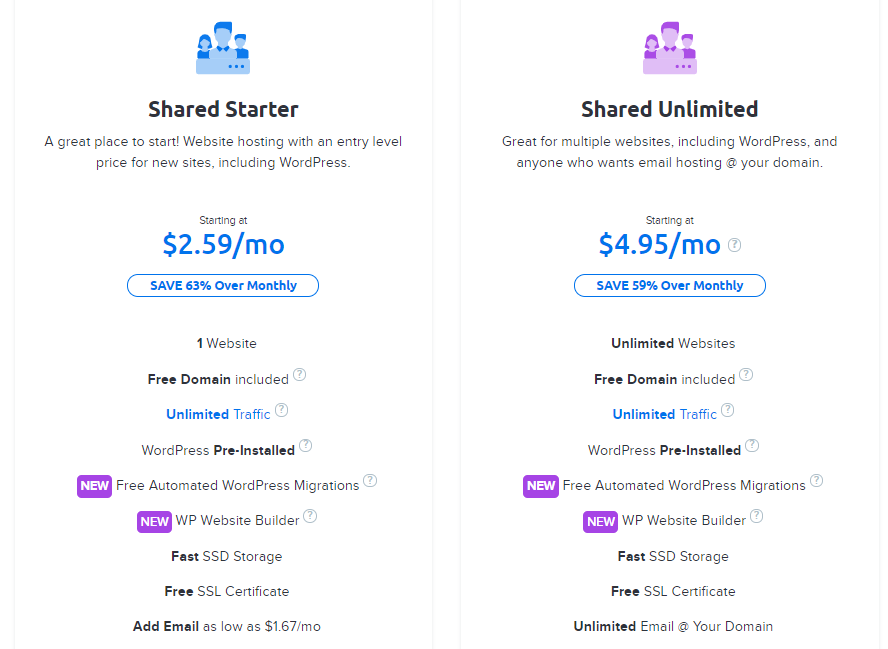

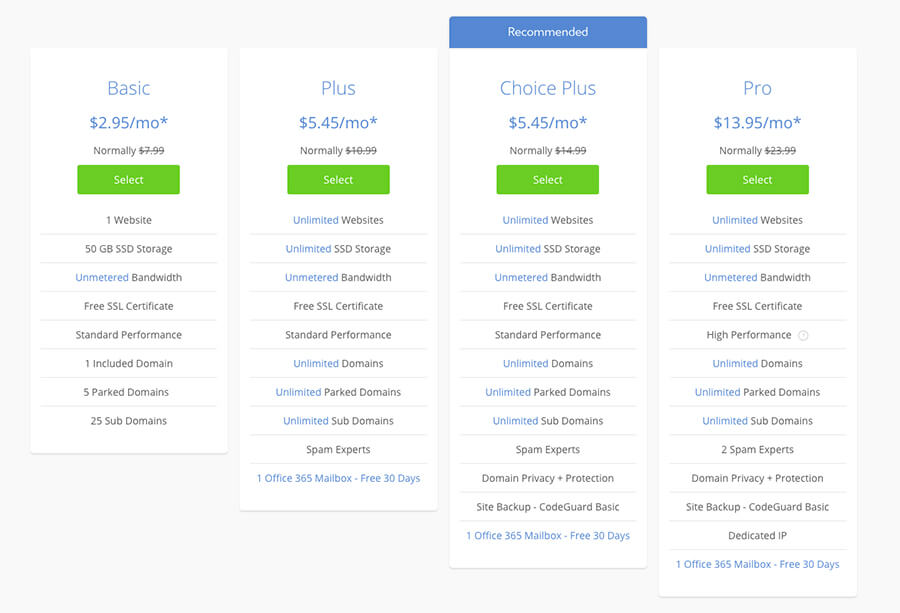

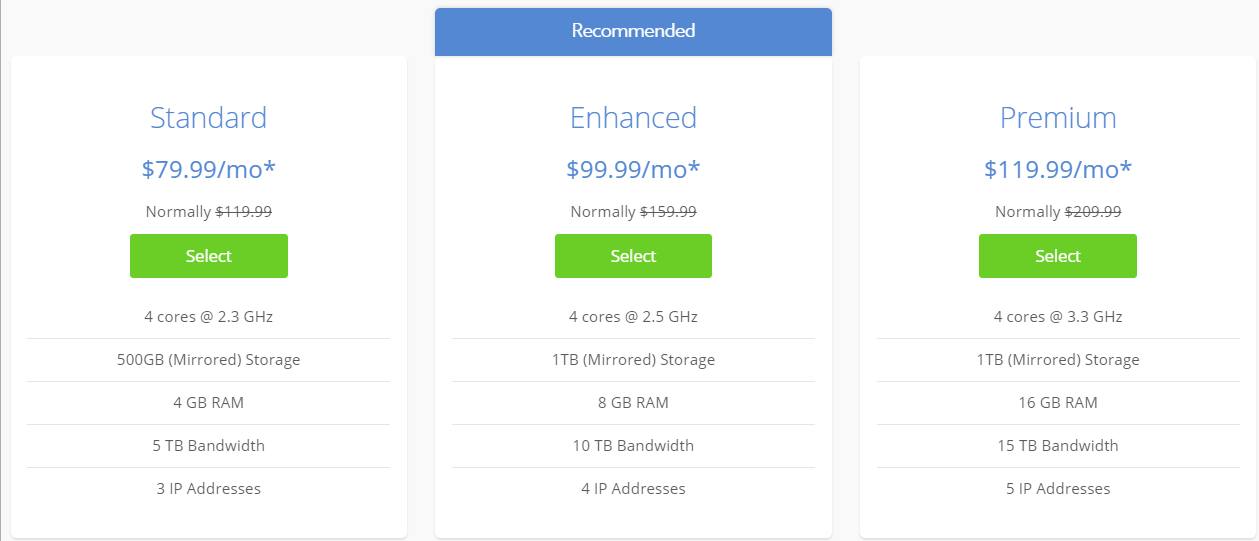
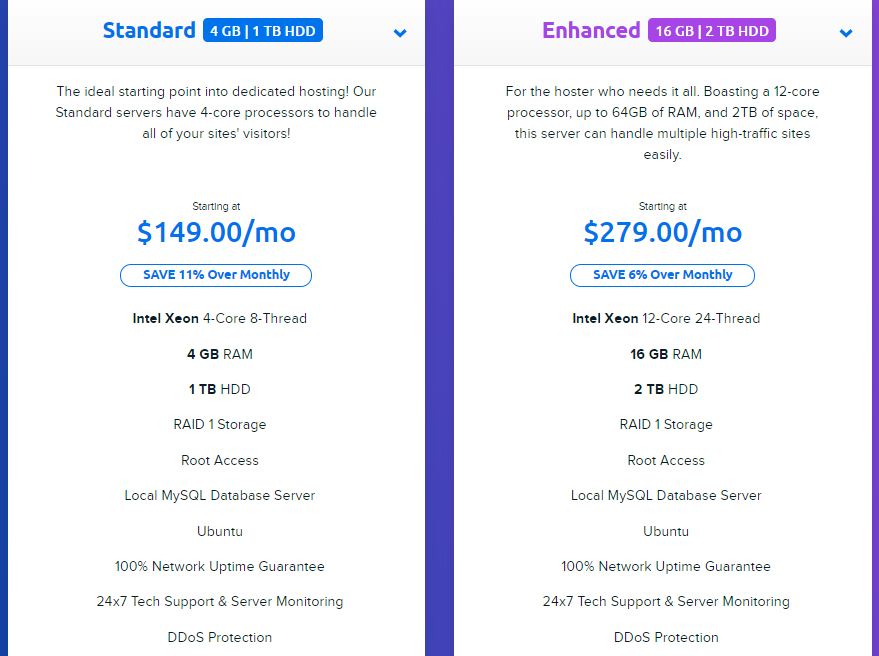

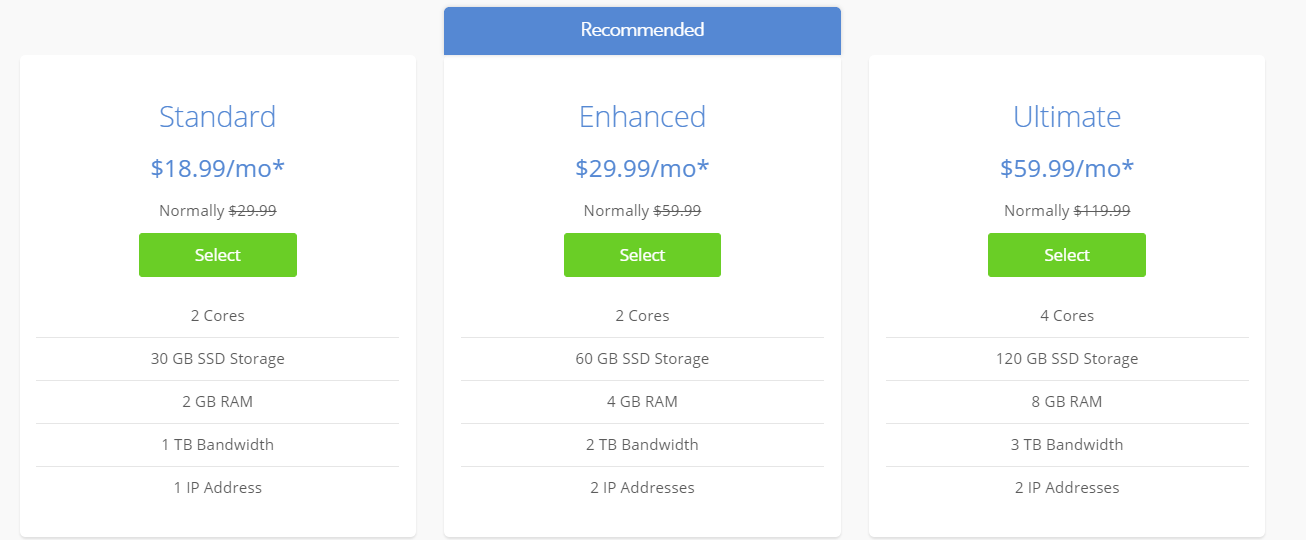

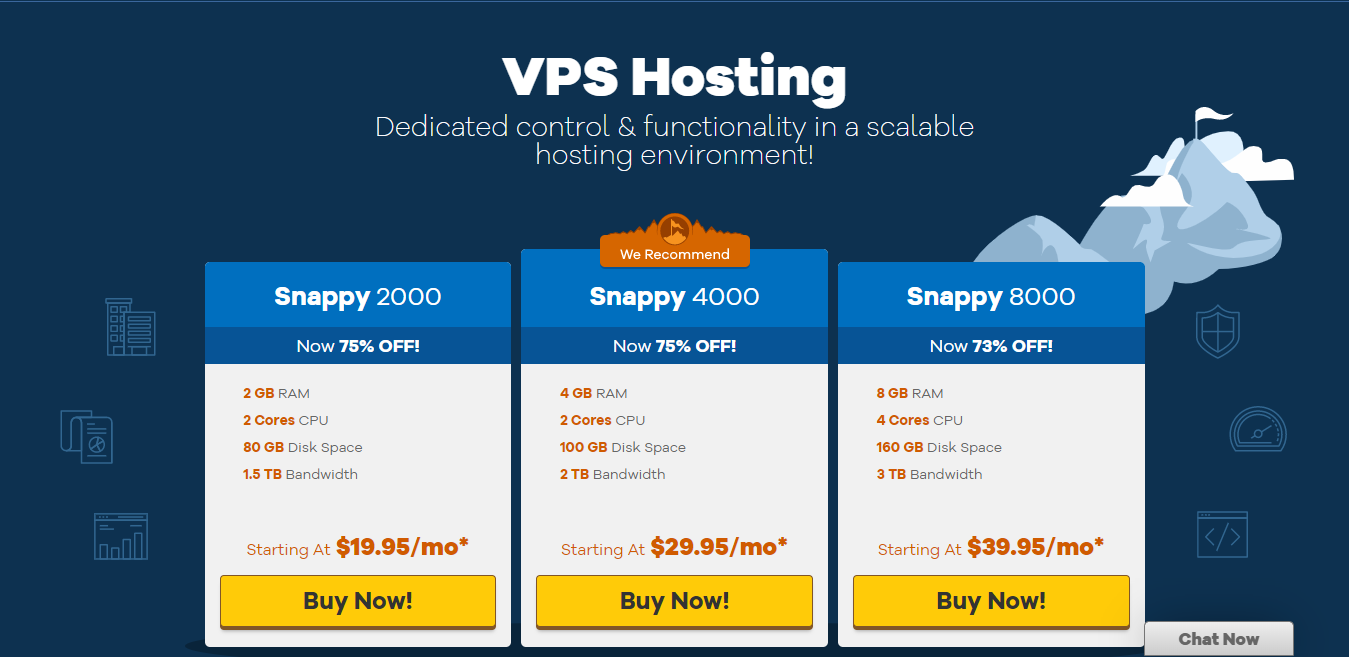
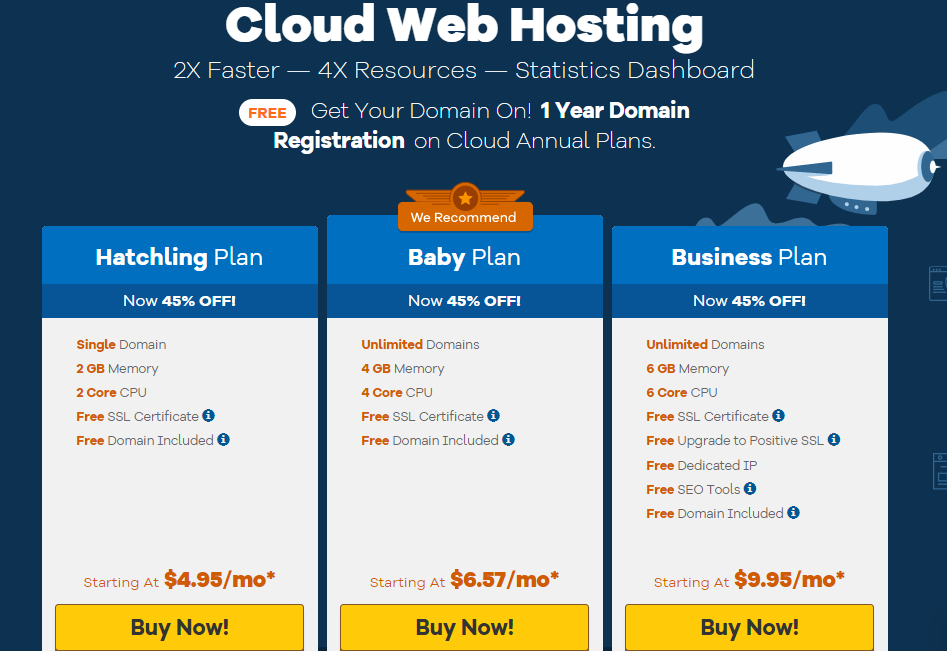
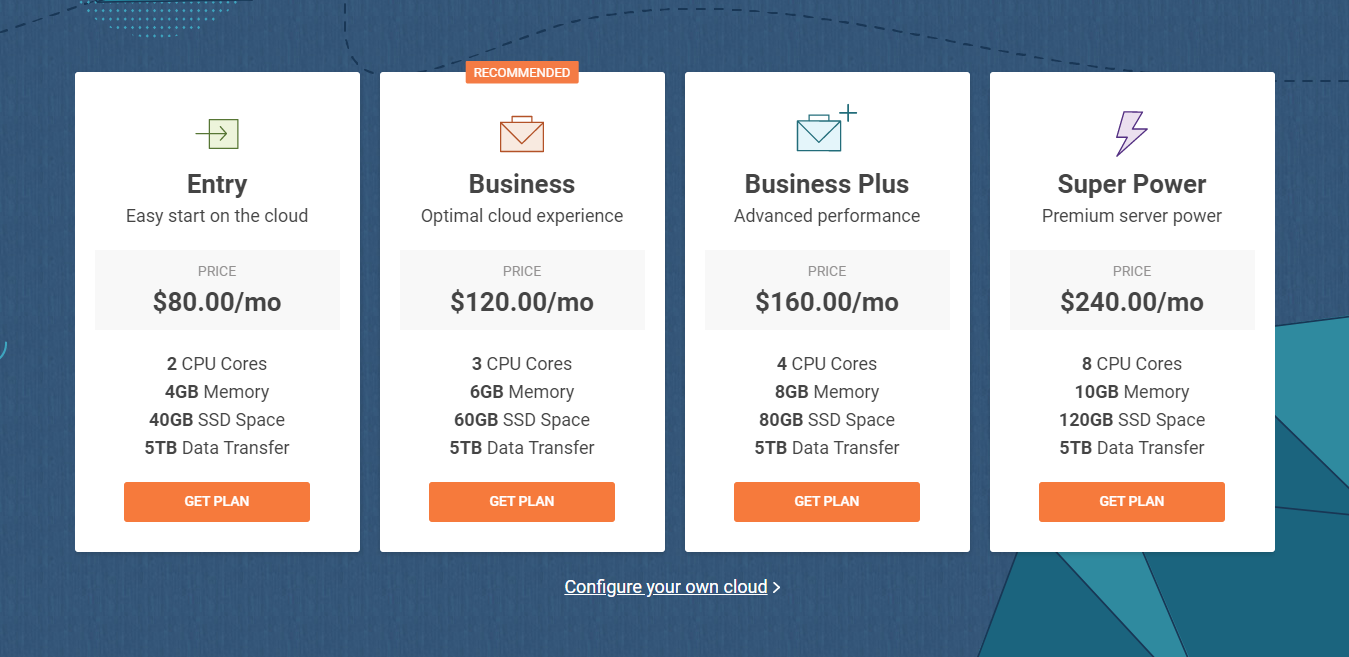


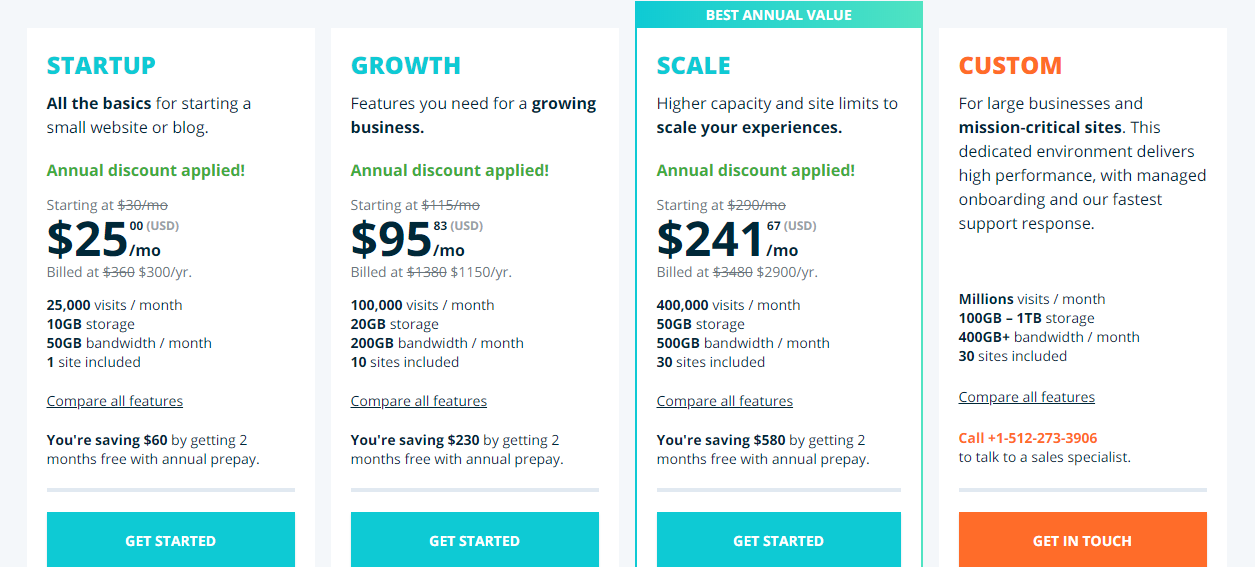
Nice
🙏
Thanks, Ryan. I finally found someone that can lay it all out! I want to start a blog but have no funds to do it. I have to rely on my husband’s income. Of course, he wanted a full spreadsheet of the start-up costs and the five-year projections. Before I read your information, I did not know what I would get into.
Thank you again,
Anna
You’re welcome, Anna! Wishing you luck—and I’d also recommend looking at this blogging costs analysis here: https://www.ryrob.com/how-much-cost-blog-budget/
hi there! i am planning to create a website for my portfolio, thanks for sharing this article with us, I must say that this very helpful for me.
Nice! Glad you found this explainer so helpful 🙂
Hey
your post is very helpful and informative.
I know Making the wrong decision on hosting could end up being an expensive mistake web hosting is simply a service that allows you to publish your website on the Internet. Websites are “stored” on powerful (and very expensive) computers called servers.
You have mention all the drawbacks and their uses in good manner.
thank you
sweety
Absolutely! Wishing you luck with your new website 🙂